Answers:
1. The text at the top of the “Rex Pils” label translates into English as: “Brewed According to the German Reinheitsgebot of 1516”, but of course there is no such thing as the “German Reinheitsgebot of 1516”, there is only the “Bavarian Reinheitsgebot of 1516”. To be clear, there is a “German Reinheitsgebot”, but that didn’t exist until after Germany actually became a country in 1871.
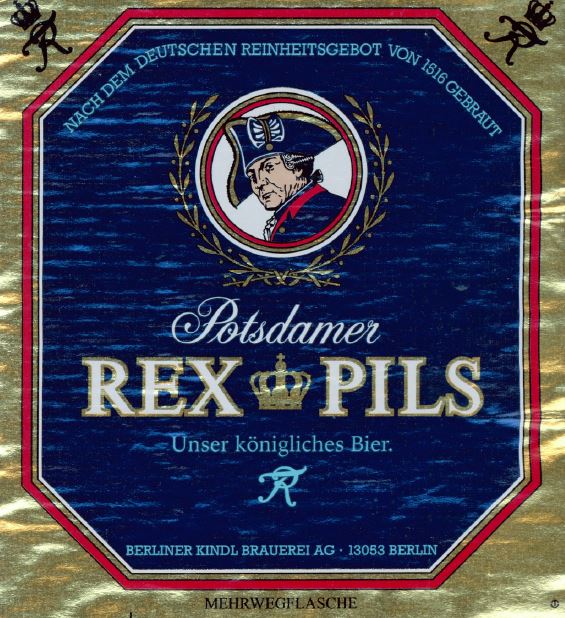
2. The small text at the top of the “Erdinger” label translates into English as: “Brewed According to the German Reinheitsgebot of 1516.” While there certainly was a Bavarian Reinheitsgebot of 1516, the only three acceptable ingredients were barely, hops and water. The problem is that Hefe-Weizen is a wheat beer, and wheat certainly was not one of the allowable ingredients under the Bavarian Reinheitsgebot of 1516.
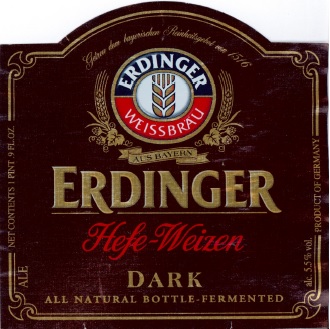
If you’re wondering if anybody has pointed this issue out to Erdinger, they have. And Erdinger replied. This is Erdinger’s response (and I’m paraphrasing):
‘A literal interpretation of the “Reinheitsgebot” is inadequate as yeast [which wasn’t even mentioned in the original document] is necessary for fermentation then as it is today. Furthermore, the consumer understands the Reinheitsgebot to mean a natural and pure food without chemicals, additives, flavorings, etc. The use of wheat for the production of beer corresponds to that expectation and therefore does not constitute deception.’
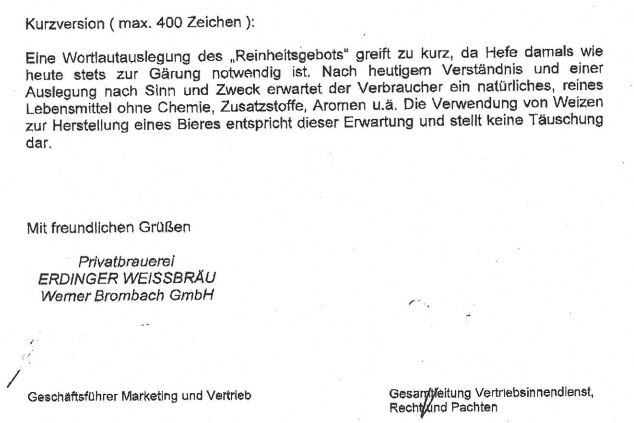
[You can see the full response here: Erdinger Response.]
With respect to Erdinger’s response, some folks have commented that it’s not exactly a fair comparison to claim that just because the Reinheitsgebot of 1516 didn’t mention yeast, then therefore it’s okay to include other ingredients in beer, in this case wheat, and then claim that such a beer is abiding by the Reinheitsgebot of 1516. The issue is that the Reinheitsgebot of 1516 wasn’t intentionally excluding yeast from the allowable ingredients, but rather people simply weren’t aware of the role of yeast in brewing in 1516. However, wheat was certainly well-known in 1516 and was excluded from the allowable ingredients on purpose.
Therefore, it seems to some that Erdinger is making a false comparison, and really should not claim that their wheat beer is following the Bavarian Reinheitsgebot of 1516, but instead they should simply indicate that they are following the “German Reinheitsgebot” which does allow for wheat just like the Hofbräuhaus does with their Hefe Weizen wheat beer (see label below).
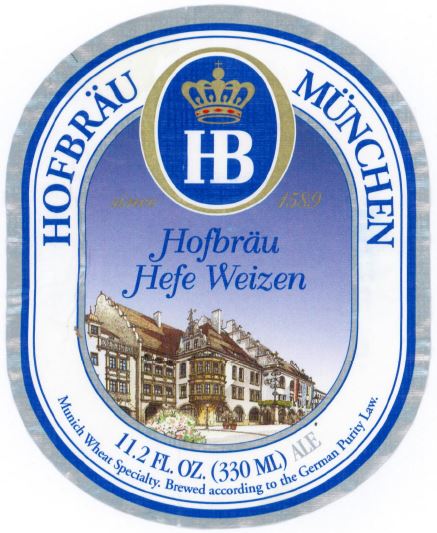
Alternatively, Erdinger could state that they are following the Bavarian Reinheitsgebot but just leave out the year “1516” because eventually the Bavarian Reinheitsgebot did allow for wheat, but only later in the 1500s (not in 1516).
What do you think?
Prost and here’s wishing you a happy upcoming Reinheitsgebot Day on April 23rd!
Like this blarticle? Well, thanks- you’re far too kind.
Tweet-worthy? That would be very kind of you: Tweet
Want to read more beer inspired thoughts? Come back any time, friend us on Facebook, or follow us on Twitter:
Follow @beersyndicate
Or feel free to drop me a line at: dan@beersyndicate.com
Hi, I’m Dan: Beer Editor for Beer Syndicate, Beer and Drinking Blogger, Gold Medal-Winning Homebrewer, Beer Reviewer, AHA Member, Beer Judge, Shameless Beer Promoter, and Beer Traveler.
Pages: 12
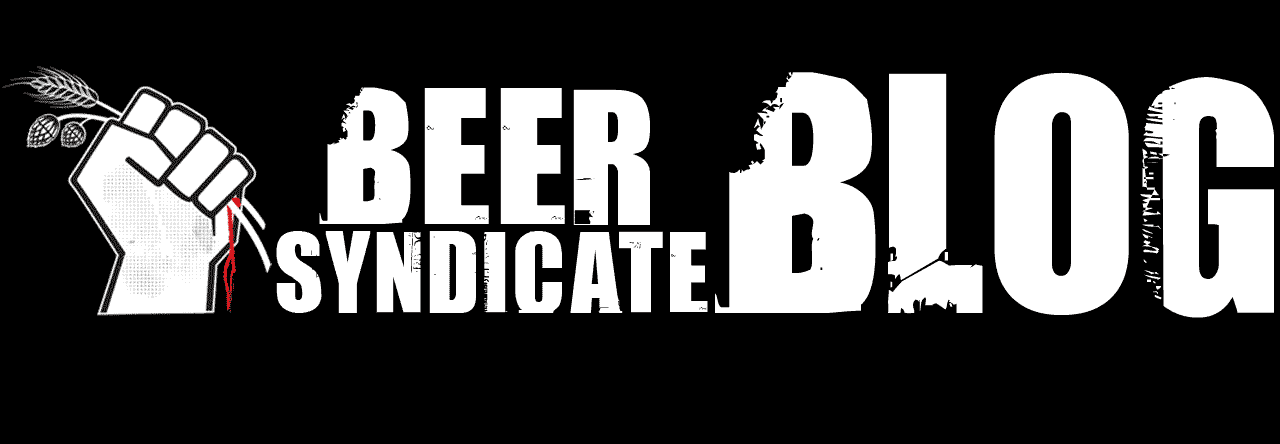




FXB
Nice article, very informative.
Greg Hansen
I’ve had the same though about Hacker-Pschorr’s Weisse. “Brewed according to the Bavarian Purity Law of 1516”, the carrier says. No, it’s not! I didn’t pursue it, but I thought they might say that, despite changes to the law over the years, it derives from the 1516 law, so the pedigree makes it a fair claim. And that might actually have been a better reply than Erdinger’s, which amounts to “It’s okay if we lie to the customers because they don’t take it seriously, either.”
Compliance with the Reinheitsgebot is certainly an important factor for the German consumer, even if he can’t explain exactly what that means. It’s like it’s code for “the way beer should be”, even if we don’t know how it should be.
The long version of the reply (thank you for including the reply) says that wheat was considered superior to barley, and that if the consumer today receives something that, from his point of view, is better or more valuable than he expected, then we can’t call it deception. But I’m going to say no, if it’s not compliant with the 1516 law then you shouldn’t say it is.